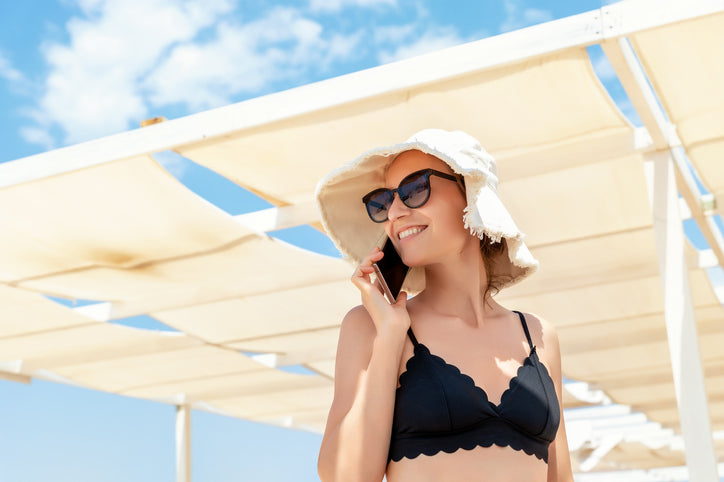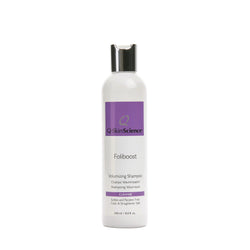1. Using the Right Sunscreen
It’s crucial to prevent your skin from burning by using a high-quality sunscreen. Invest in a product that:
Apply plenty of sunscreen 30 minutes before you go outside and reapply at least every two hours, even if it starts to appear cloudy. Ensure good coverage, including your ears, lips, and neck. Remember that even with water-resistant sunscreen, you’ll need to reapply immediately after being in the water.
UV protection is an essential step in every skincare regime, providing the most anti-aging benefits compared to any other topical skincare product. Daily UV exposure, not just during vacations or summer days, significantly contributes to skin aging. Even in cool weather and on cloudy days, wearing broad-spectrum (UVA & UVB) protection can be your best defenseagainst premature aging and skin cancer. Q-SkinScience formulas not only protect against both aging and burning rays but also perfect your complexion and protect your hair from damage.
2. Wear Protective Clothing
Protect your skin from UV rays by wearing loose clothes that cover your skin, such as long-sleeved tops and trousers made from breathable fabrics. Some clothing now includes details of the UPF (UV Protection Factor) on the label. The higher the UPF, the less UV radiation will reach your skin through the fabric. If you don’t have UPF clothing, choose clothing with a tighter weave by holding it up to the light to gauge how much sunlight can get through. Plususe sunglasses to protect your eyes from harmful UV rays with sunglasses that block 100% of UVA and UVB rays.
3. Check the UV Index
The UV index indicates how strong the UV rays are in your area on any given day. The higher the UV index, the easier it is for your skin to burn and become damaged.
4. Seek Out Shade
The sun’s rays are strongest around midday when the sun is highest in the sky, typically between 11 a.m. and 3 p.m. Ideally, avoid sitting in the sun during these times and seek shade whenever possible. Sunlight also reflects off surfaces like water, sand, concrete, and snow, so even in shaded areas, it can damage your skin and eyes.
5. Drink Plenty of Water
When the temperature rises, your body sweats more to cool you down. It's important to stay hydrated by drinking plenty of fluids when it's hot outside. Aim for a minimum of 6-8 glasses of water per day. Tea, coffee, smoothies, and low-fat milk also count towards your daily fluid intake. Remember that fruit juice and smoothies are high in sugar and should be limited to one glass per day. Avoid alcohol when possible, as it is a diuretic and can increase dehydration.



